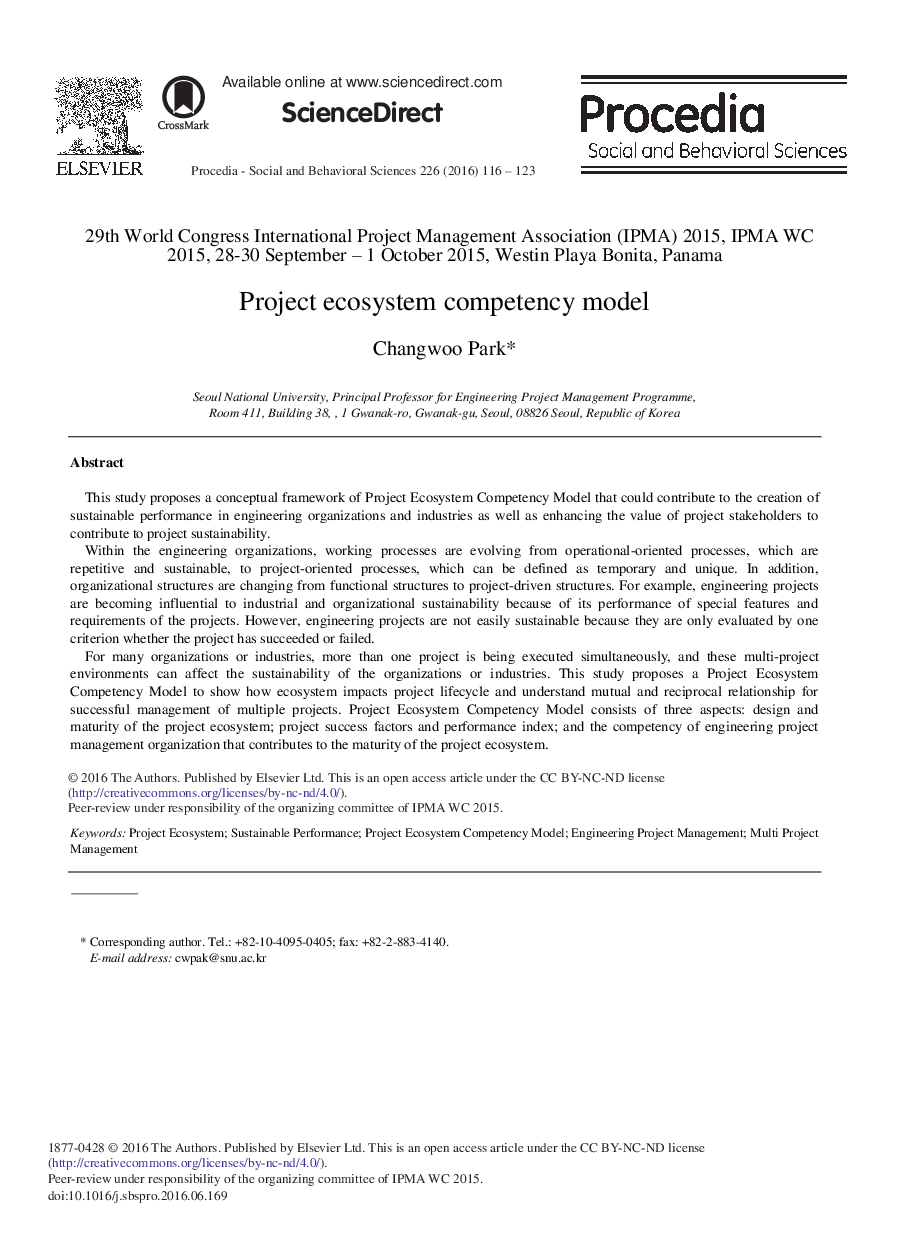| کد مقاله | کد نشریه | سال انتشار | مقاله انگلیسی | نسخه تمام متن |
|---|---|---|---|---|
| 1107477 | 1488333 | 2016 | 8 صفحه PDF | دانلود رایگان |
This study proposes a conceptual framework of Project Ecosystem Competency Model that could contribute to the creation of sustainable performance in engineering organizations and industries as well as enhancing the value of project stakeholders to contribute to project sustainability.Within the engineering organizations, working processes are evolving from operational-oriented processes, which are repetitive and sustainable, to project-oriented processes, which can be defined as temporary and unique. In addition, organizational structures are changing from functional structures to project-driven structures. For example, engineering projects are becoming influential to industrial and organizational sustainability because of its performance of special features and requirements of the projects. However, engineering projects are not easily sustainable because they are only evaluated by one criterion whether the project has succeeded or failed.For many organizations or industries, more than one project is being executed simultaneously, and these multi-project environments can affect the sustainability of the organizations or industries. This study proposes a Project Ecosystem Competency Model to show how ecosystem impacts project lifecycle and understand mutual and reciprocal relationship for successful management of multiple projects. Project Ecosystem Competency Model consists of three aspects: design and maturity of the project ecosystem; project success factors and performance index; and the competency of engineering project management organization that contributes to the maturity of the project ecosystem.
Journal: Procedia - Social and Behavioral Sciences - Volume 226, 14 July 2016, Pages 116–123
